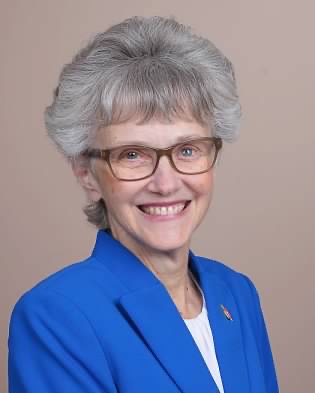Often, we think of church as sanctuary. A sanctuary is a place of safety, a refuge from the dangers of the world. When we enter a sanctuary, we expect to be protected and comforted, perhaps by a gentle—or even bold—sermon proclaiming God’s love. This is an important aspect of the Christian tradition. But to what end? Should a sermon not provoke as well as comfort?
Last week, I was privileged to hear sermons by two United Methodists. These sermons proclaimed God’s love in radically different ways. Both moved me out of my comfort zone, challenging me to imagine the uncomfortable wideness of God’s mercy. Both of these preachers provoked an awareness that God’s love for the world includes love for people in ways I may not want to. These are my reflections on one of these sermons.
What is your superpower?

Bishop Peggy Johnson preached for the 195th Fall Convocation of Lancaster Theological Seminary, August 28, 2020. Welcoming new students and encouraging returning students, the Convocation is meant to set the tone for the beginning of another academic year. Johnson invited us to imagine the combination of our unique abilities and disabilities as a superpower.
Superpower is just another name for spiritual gifts. Based on 1 Corinthians 12, she spoke of the varieties of gifts that each of us has as a beloved child of God, each of us “fearfully and wonderfully made” (Psalm 139:14). Some persons are good at sports, some at teaching, others at teambuilding. Each of us has something to offer the greater community. It is easy to imagine that “gifted” people have something to offer others. The provocation comes when Paul writes of “giving the greater honor to the inferior member” (1 Cor 12:24).
You see, Johnson is a champion of persons with so-called disabilities. She is fluent in American Sign Language. She was a campus minister at Gallaudet University and pastored the Christ UMC of the Deaf for twenty years before her election as bishop. She has written a book on awareness, accessibility, and advocacy for people with disabilities. She is open about sharing her own disabilities, for example, being blind in one eye. She literally sees the world differently from the way many of us do.
As she preached, my imagination awoke. For the church, this means that diversity and difference are not only to be tolerated but celebrated. Johnson’s words from last year, in response to a pastor supporting the United Methodist Church’s discriminatory policies against same-sex marriage and ordination of homosexuals, echoed in my mind:
The church is called to be on the side of those who are oppressed. Our church through history has worked through our social issues with an eye to justice. Our rules were many times challenged in order to liberate people. With each victory (such as the end of the [racially segregated] Central Jurisdiction and the ordination of women) the church has become more and more gifted and inclusive.
Bishop Peggy Johnson, response letter, November 20, 2019
For the United Methodist Church today, our current struggle is the full and equal inclusion of LGBTQIA+ persons. When will this church offer liberation instead of oppression? When will this church recognize the gifts rather than demonize the differences? Johnson’s sermon pushed me further out of my comfort zone, though.
Through her sermon, Johnson provoked me to consider that her unique combination of abilities and disabilities is her superpower, a gift of God. Not that we should glorify suffering. By no means! Her point was everyone has a unique set of gifts that makes them who they are, beloved by God, and important to the community. She offered example after example of persons who did not allow their disabilities to become obstacles to flourishing—in fact, they leveraged their uniqueness to become blessings to others. This is the nature of God’s incomprehensible, unbounded, transforming love. This is the inviting yet challenging word of God. Quite a provocation!